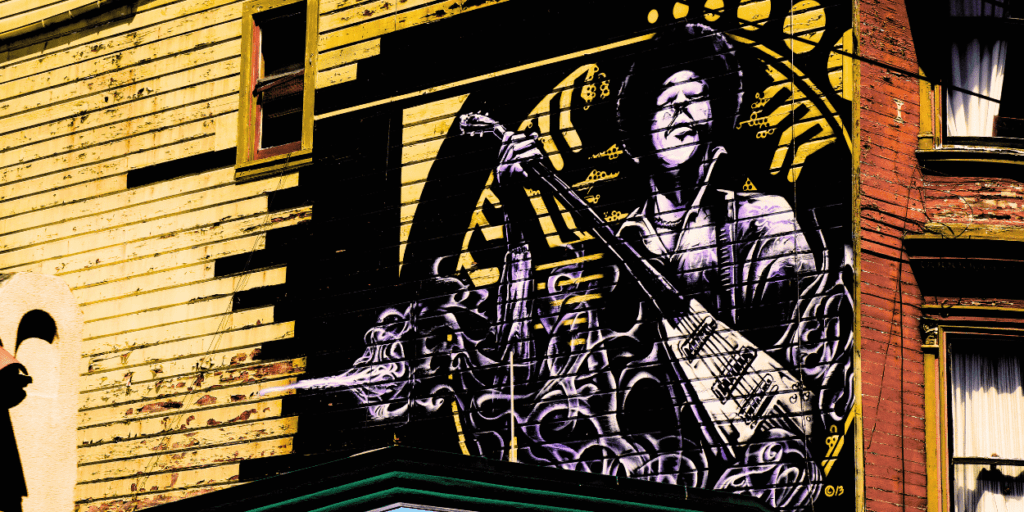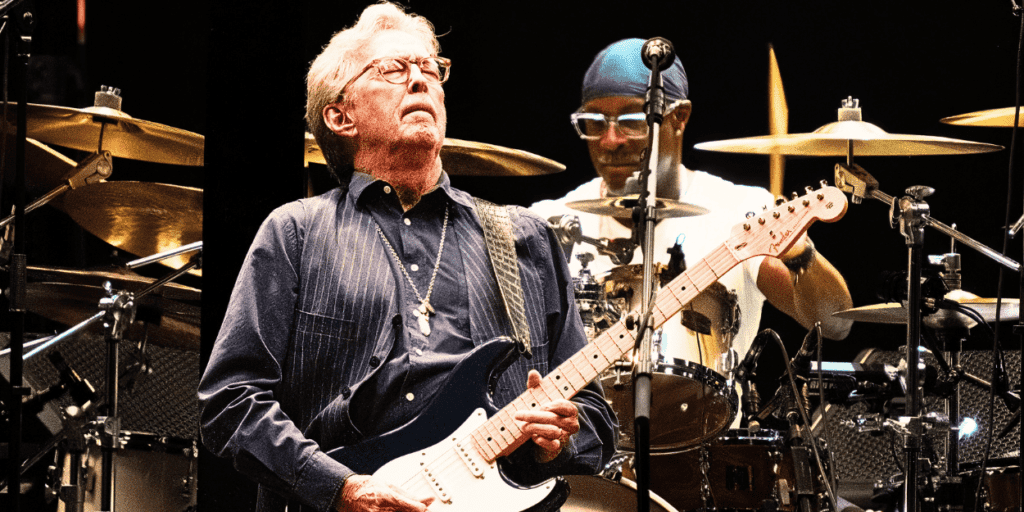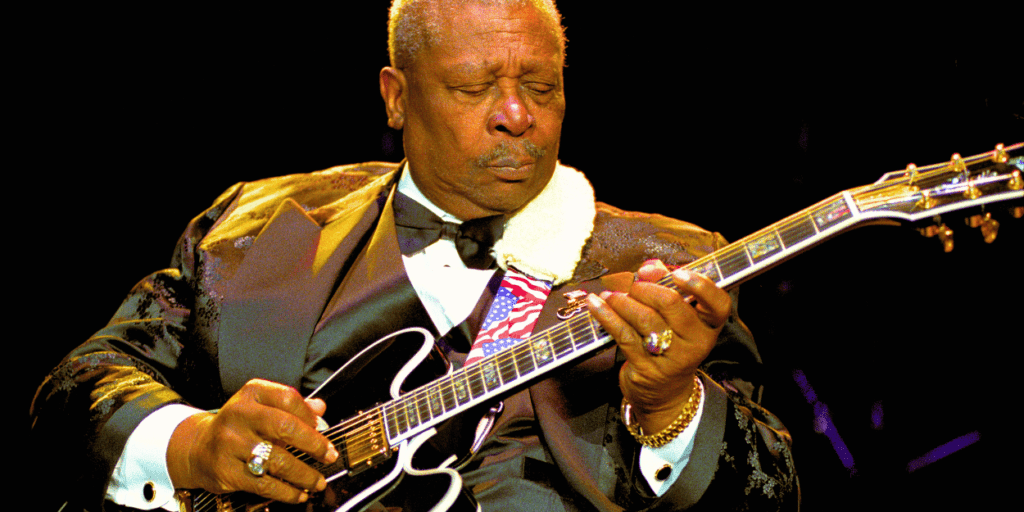The guitar serves as more than just a musical instrument; it’s a conduit for cultural and artistic transformation. With each stroke of the strings, an entire universe of possibilities unfolds, breaking down barriers between genres and generations.

The guitar has the unique ability to tap into an expansive musical vocabulary, challenging both the artist and the listener to explore new terrains of sound and emotion. The legends who master this stringed instrument do not merely play notes; they articulate an ever-changing dialogue that reflects our collective consciousness.
This transformative influence of the guitar is not confined to the auditoriums, juke joints, or rock arenas—it resounds through history, shaping our understanding of what music can achieve.
Table of Contents
Jimi Hendrix
Born in 1942, Jimi Hendrix’s turbulent upbringing in Seattle led him to seek solace in music, serving as a catalyst for his creative genius. His early and intimate exposure to blues informed his later groundbreaking psychedelic innovations.
With inventive techniques like feedback manipulation and the pioneering use of effects pedals, Hendrix sculpted an unparalleled sonic landscape. His jaw-dropping 1969 Woodstock performance of the “Star-Spangled Banner” stands as a cultural and musical landmark, encapsulating political dissent and virtuosic artistry.

Hendrix’s flamboyant style and on-stage charisma set a precedent for artists who would use visuals to amplify their performance, drawing parallels to other innovative artists, such as the iconic makeup of David Bowie. He was more than a musician; he was a captivating showman whose magnetic stage presence broke new ground. His
Eric Clapton
The illustrious journey of Eric Clapton commenced with the Yardbirds, matured with John Mayall’s Bluesbreakers, and achieved iconic status through his ventures with Cream and Derek and the Dominos.
His distinct style, a seamless fusion of blues and rock, set him apart as an artist of remarkable depth. His emotionally charged guitar solos, like the timeless “Layla,” resonate with listeners as profound musical experiences.

Years later, his lauded MTV Unplugged performance served to further showcase his astounding versatility and ageless relevance, thus ensuring that he continued to bring the blues into rock’s mainstream lexicon.
B.B. King
The prodigious B.B. King’s music emanated from the fertile soil of the Mississippi Delta, the cradle of blues. His understated philosophy of “less is more” offered a study in nuanced restraint and intricate note selection. The seminal 1964 album “Live at the Regal” remains a high-water mark in King’s conversational approach to guitar playing.
His overarching influence extends far beyond blues into rock and even jazz, serving as a keystone in multiple musical arenas. King was not just a superb musician; he acted as a transformative bridge between divergent musical worlds.

Paco de Lucía
Spanish virtuoso Paco de Lucía ignited the global music scene with his unparalleled expertise in flamenco guitar while also stretching the genre’s traditional boundaries. Despite his profound respect for flamenco’s age-old traditions, he fearlessly ventured into jazz, classical, and world music. Collaborations with guitar luminaries like Al Di Meola and John McLaughlin, evidenced in masterpieces like “Mediterranean Sundance,” showcased his dynamic adaptability.
De Lucía’s audacious, genre-bending contributions have expanded the global repertoire for guitarists, transcending his native flamenco roots and fostering a more interconnected musical world.
Eddie Van Halen
The trailblazing Eddie Van Halen burst onto the rock scene in 1978 with groundbreaking techniques that seemed almost extraterrestrial, bordering on the fantastical. The seminal track “Eruption” exhibited radical methods like two-handed tapping, whammy bar dives, and advanced harmonics. Yet, Eddie’s innovative impact wasn’t confined to just playing; he was also an intuitive innovator in guitar design, crafting custom instruments that immortalized his unique sonic fingerprint.
These pioneering innovations have thrust the electric guitar into a new realm of technical proficiency and sonic possibility, forever changing our perceptions of what the instrument could achieve.
Conclusion
Jimi Hendrix, Eric Clapton, B.B. King, Paco de Lucía, and Eddie Van Halen each displayed an awe-inspiring level of artistry throughout their illustrious careers. These virtuosos have shattered established musical norms, delivering unexpected yet emotionally resonant artistic statements. Their enduring works function as seminal texts on how to push an instrument and an entire genre to their ultimate limits, thereby demolishing both musical and cultural barriers.